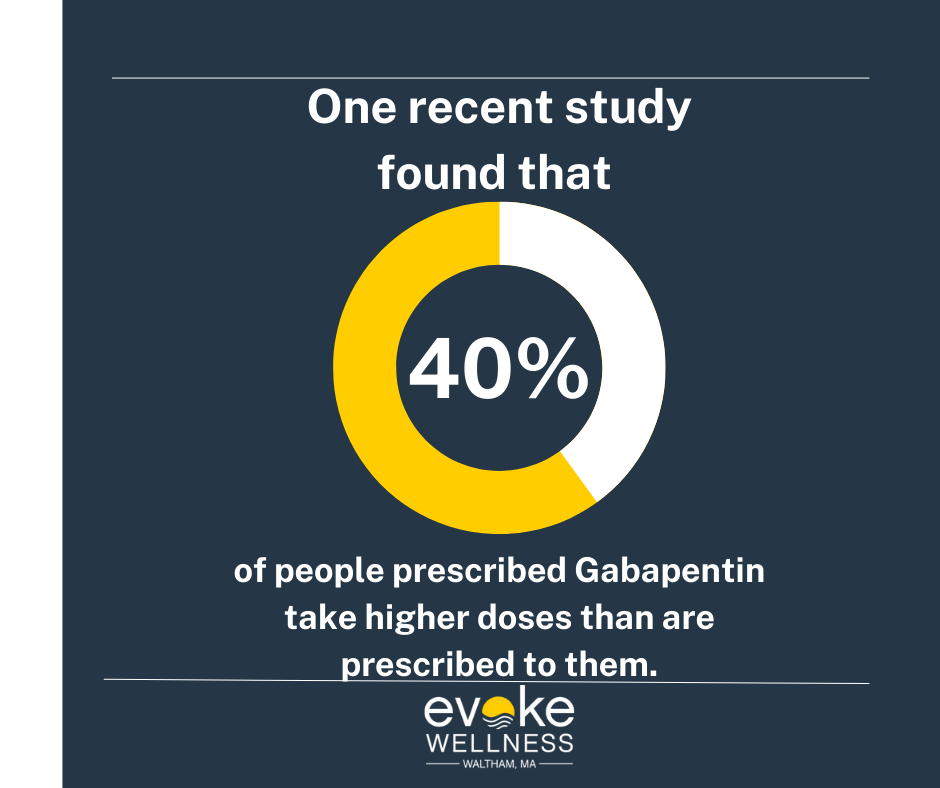As you struggle with gabapentin addiction, finding the right treatment program can feel overwhelming. With options ranging from prescription drug addiction programs to holistic therapies, determining the path forward involves careful consideration of your needs. Evaluating night treatments, day treatments, and 12-step models alongside newer approaches like cognitive-behavioral therapy, dialectical behavior therapy, and acceptance and commitment therapy allows you to make an informed decision. By reviewing the types of gabapentin addiction treatment available, you empower yourself to take the first steps toward recovery and a healthier future. Start your recovery journey today and call us at (833)-287-7223 or reach out online.
What Is Gabapentin?
Gabapentin is a prescription medication primarily used to treat neuropathic pain and prevent seizures in adults with epilepsy. However, it is also commonly prescribed off-label for various other conditions like anxiety disorders and restless leg syndrome.
Potential for Misuse
While not an opioid or narcotic, gabapentin can still produce a mild euphoric “high” when taken in excessive doses – leading to potential misuse and addiction. The risk increases significantly if combined with other depressants like alcohol or opioids.
Signs of Gabapentin Addiction
- Taking higher doses than prescribed
- Doctor shopping for multiple prescriptions
- Withdrawal symptoms when stopping use
- Continuing use despite negative consequences
With proper medical supervision and responsible use as prescribed, gabapentin remains a relatively safe and effective medication. However, its misuse underscores the importance of seeking comprehensive addiction treatment if struggling with dependence.
Understanding Gabapentin Addiction
Gabapentin, initially approved to treat neuropathic pain and epilepsy, is now increasingly misused and abused. One recent study found that 40% of people prescribed gabapentin take higher doses than are prescribed to them. Its calming effects make it a drug of choice, leading to dependence and addiction.
Recognizing the Signs
Gabapentin addiction often starts innocently, with users taking higher doses to enhance the drug’s effects. Over time, they develop tolerance and experience withdrawal symptoms when trying to quit.
- Excessive drowsiness or lethargy
- Slurred speech and lack of coordination
- Mood swings and irritability
Seeking Professional Help
Overcoming gabapentin addiction requires professional intervention and a comprehensive treatment plan. Medically-supervised detox is crucial to manage withdrawal safely. Counseling, therapy, and support groups address the psychological aspects of addiction.
Signs of Gabapentin Addiction
Physical Symptoms
- Slurred speech or unsteady gait
- Drowsiness or fatigue
- Nausea and vomiting
- Tremors or shakiness
Psychological Signs
- Strong cravings for gabapentin
- Inability to cut down usage
- Mood swings or irritability
- Anxiety or paranoia when not taking it
Behavioral Indicators
- Doctor shopping to obtain more prescriptions
- Social withdrawal or isolation
- Poor work or school performance
- Lying about gabapentin use
If you recognize these signs in yourself or a loved one, seeking professional help for gabapentin addiction is crucial. Treatment programs can provide the support and resources needed for a successful recovery.
Risks of Gabapentin Abuse
While gabapentin is generally considered non-addictive when taken as prescribed, abuse of this medication can lead to troubling side effects and dependencies. Recreational misuse increases the risks of:
Physical Side Effects
- Dizziness, drowsiness and impaired coordination
- Nausea, vomiting and appetite changes
- Unusual eye movements or blurred vision
- Tremors and difficulty with speech
Psychological Impact
- Feelings of anxiety, panic or agitation
- Mood swings and irritability
- Confusion and disoriented thinking
- Potential for psychosis or suicidal thoughts
Dependence and Withdrawal
With long-term abuse, gabapentin can cause physical and psychological dependence. Abruptly stopping can trigger severe withdrawal symptoms like insomnia, nausea, sweating and seizures. Medical detox is strongly recommended for safer, more comfortable recovery.
Treatment Options for Gabapentin Addiction
Prescription Drug Addiction Programs
Specialized prescription drug addiction treatment centers offer comprehensive care. Programs blend medication-assisted treatment, therapy, counseling, and holistic therapies. This multi-pronged approach supports lasting recovery.
Cognitive Behavioral Therapy (CBT)
Cognitive- behavioral therapy (CBT) helps identify and change negative thought patterns driving addictive behaviors. Through CBT, you develop coping skills to resist cravings and prevent relapse.
Dialectical Behavior Therapy (DBT)
Dialectical-Behavioral Therapy (DBT) emphasizes mindfulness, distress tolerance, emotion regulation, and interpersonal effectiveness skills. It equips you to manage triggers and build a life worth living.
Outpatient Programs
Intensive outpatient programs (Night Treatments) and day treatment provide recovery support while living at home. These flexible options allow you to maintain work/life obligations.
12-Step Programs
Community-based 12-step addiction treatment programs like Narcotics Anonymous offer free peer support meetings. Working the 12 steps facilitates spiritual and character growth for lifelong sobriety.
Finding the Right Gabapentin Addiction Treatment Program for You
Overcoming gabapentin addiction requires professional help tailored to your unique needs. There are various treatment options available, each with its own approach and benefits.
Prescription Drug Addiction Programs
These specialized programs focus on treating addictions to prescription medications like gabapentin. They offer a comprehensive approach combining medical detox, counseling, and aftercare planning.
Holistic Addiction Therapy
Holistic addiction therapy programs incorporate complementary therapies like yoga, meditation, and nutrition counseling alongside traditional treatment methods. This whole-person approach addresses physical, mental, and emotional aspects of addiction recovery.
Evidence-Based Therapies
Many rehab centers offer evidence-based therapies proven effective for substance use disorders:
- Cognitive-Behavioral Therapy (CBT) helps identify and change negative thought patterns
- Dialectical Behavior Therapy (DBT) teaches mindfulness and emotion regulation skills
- Acceptance and Commitment Therapy (ACT) promotes psychological flexibility
Treatment Program Types
The intensity of care you require will determine the most suitable program type:
- Night Treatment Programs (Night Treatments) provide treatment without overnight stays
- Day Treatment offers a higher level of care than Night Treatments
- Inpatient or residential rehab provides 24/7 monitoring and support
FAQ: Gabapentin Addiction | Night Treatment Program (Night Treatment) | Day Treatment Programs | Cognitive-Behavioral Therapy (CBT) | Acceptance and Commitment Therapy (ACT)
Night Treatment Programs
Intensive outpatient programs (Night Treatments) provide a higher level of care than regular outpatient treatment. They allow you to live at home while receiving gabapentin addiction therapy several times per week.
Day Treatment Programs
Day treatment programs are highly structured, with gabapentin addiction treatment provided daily. You’ll attend counseling and other therapies during the day but can return home at night.
Cognitive-Behavioral Therapy
Cognitive-behavioral therapy (CBT) helps identify and change negative thought patterns and behaviors contributing to gabapentin abuse. CBT equips you with coping strategies to prevent relapse.
Acceptance and Commitment Therapy
Acceptance and commitment therapy (ACT) uses mindfulness to help you accept difficult thoughts and emotions without letting them control your behavior. It guides you toward living a meaningful life, aligned with your values.
Conclusion
As you consider treatment options for gabapentin addiction, remember that an integrated approach is often most effective. Work closely with medical and mental health professionals to develop a customized plan. Be open to combining evidence-based therapies like CBT and holistic practices. Seek support from peers in recovery. With commitment to the process and compassion for yourself, you can overcome dependency on gabapentin. The path forward may not always be easy, but recovery is within reach if you access the right resources and maintain hope. Approach this challenge as an opportunity for greater well-being and a turning point in your life story. You have the strength to get through this.
Begin Your Journey with Evoke Wellness at Waltham
If you or a loved one is considering outpatient treatment, Evoke Wellness at Waltham invites you to contact us. Our compassionate team is ready to answer your questions, discuss your needs, and help you take the first steps toward recovery. At Evoke Wellness, you will find more than just a treatment program – you’ll discover a community dedicated to your wellness and success. Together, let’s embrace the journey to recovery and the promise of a new beginning. Call us at (833)-287-7223 today or reach out online.



